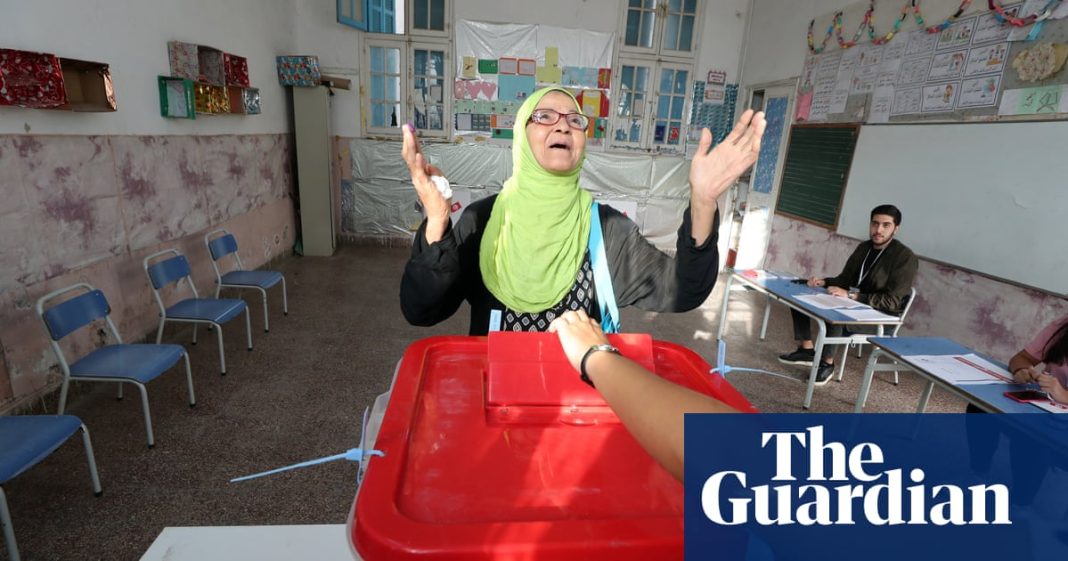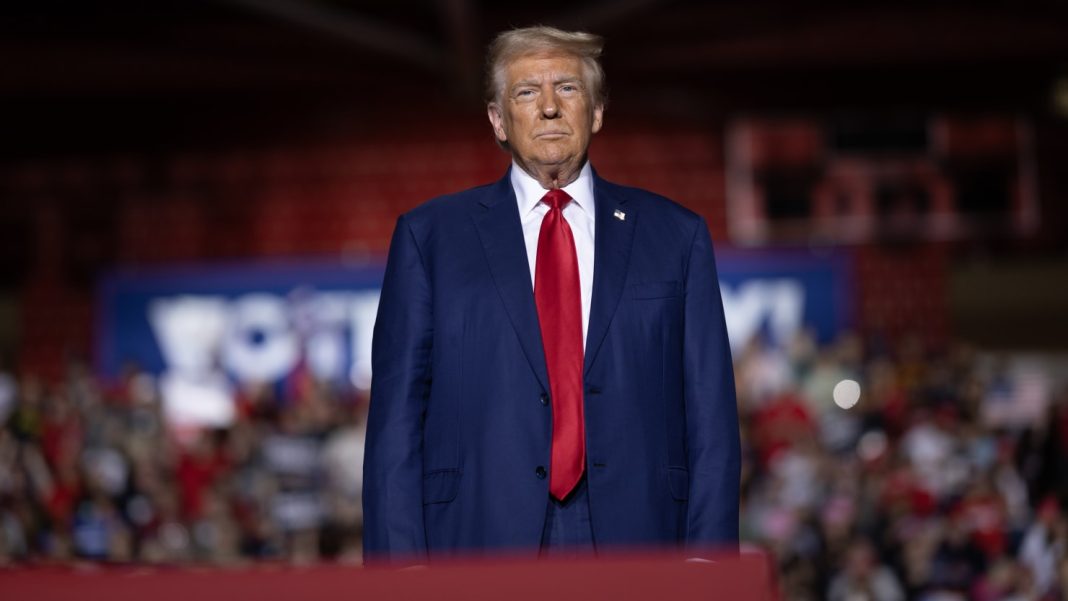Voting Begins in Tunisia’s Presidential Election Amidst Political Turmoil and Economic Struggles
Voting has officially kicked off in Tunisia as President Kais Saied seeks a second term in an election that many observers believe marks the end of the country’s democratic experiment. With his most prominent critics behind bars and his main rival jailed just last month, the atmosphere surrounding the election is charged with tension and uncertainty.
For over a decade, Tunisia has been celebrated as the birthplace of the Arab Spring, a movement that sparked hopes for democracy in the region after years of autocratic rule. However, the current political landscape tells a different story. Since taking office in 2019, Saied has been accused of rolling back the democratic gains made since the revolution, consolidating power by dissolving the elected parliament and rewriting the constitution in 2021—a move many labeled a coup.
As voters head to the polls, the absence of vibrant campaign rallies and public debates is palpable. The streets are plastered with Saied’s campaign posters, while opposition parties, largely silenced by a wave of arrests, have not endorsed any candidates. Key figures from these parties have faced imprisonment on various charges, leaving the political scene eerily quiet. Saied’s two remaining opponents include Zouhair Maghzaoui, a former ally turned critic, and Ayachi Zammel, a businessman who was seen as a significant threat until his sudden incarceration last month on allegations of forgery.
The mood among the electorate is one of resignation. Many, like 22-year-old Mohamed, feel disillusioned, believing that their votes won’t lead to meaningful change. “We have nothing to do with politics,” he shared, reflecting a sentiment echoed by many young Tunisians. In contrast, some, like Wael, a bank employee, express a desire for change despite the oppressive political climate. “The scene is shameful,” he remarked, highlighting the stark reality of journalists and political opponents languishing in prison.
Polling stations will close at 6 PM, with results expected in the following days. However, the lead-up to the election has been fraught with controversy. Saied’s electoral commission disqualified three prominent candidates last month, igniting protests from opposition and civil society groups. Just last week, lawmakers loyal to Saied passed a law that stripped the administrative court of its authority over election disputes, further consolidating his grip on power.
The political climate is further complicated by Saied’s controversial remarks regarding migrants from sub-Saharan Africa, which have drawn condemnation from the African Union for inciting hate speech. This rhetoric has led to physical attacks and evictions of black immigrants in Tunisia, raising serious human rights concerns.
As the election unfolds, the backdrop of political repression looms large. Human Rights Watch reports that over 170 individuals are currently detained for political reasons, including Rached Ghannouchi, the 83-year-old leader of the Ennahda party and a prominent critic of Saied.
Despite the electoral board’s expectation of around 9.7 million voters, enthusiasm appears to be waning. The International Crisis Group noted that Saied’s nationalist rhetoric and the ongoing economic crisis have dampened any excitement citizens might have had about the election. Many fear that a renewed mandate for Saied will only exacerbate the country’s socioeconomic challenges and deepen its authoritarian drift.
On the streets of Tunis, protests have erupted against Saied’s regime, with demonstrators denouncing him as a “Pharaoh manipulating the law.” Yet, some citizens, like fruit seller Salem Lahmar, continue to support Saied, viewing him as a fighter against corruption. “He’s the first president who fought corrupt politicians,” Lahmar stated, reflecting a complex mix of support and criticism that characterizes the current political landscape.
As Tunisia grapples with economic hardships, including shortages of essential goods and rising prices, the outcome of this election could have far-reaching implications for the country’s future. With European nations concerned about migration flows from Tunisia, financial aid has been extended, but the country’s fiscal health remains precarious.
As the sun sets on polling day, the world watches closely to see what the future holds for Tunisia—a nation that once inspired hope for democratic change but now stands at a crossroads.



